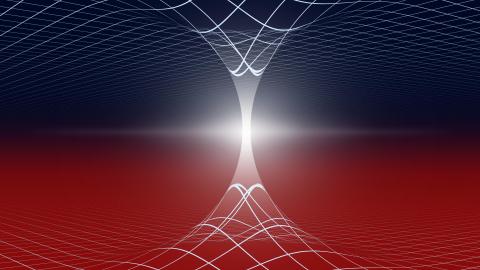Anti-Matter May Have Anti-Gravity Properties, i.e. Fall Up

What’s the Latest Development?
Physicists at the world’s biggest physics lab, the CERN laboratories on the French-Swiss border, have collected initial findings on anti-matter which suggest it might also have anti-gravity properties. In other words, anti-matter may fall up. “If antimatter were to fall up, it could help explain one physics’ greatest mysteries, namely, why the universe seems to contain so much matter – such as stars, planets, belly-button lint and so on – and so little antimatter, which, as far as we know, exists only as products of radioactive decay, exploding stars, and very strong electric fields.”
What’s the Big Idea?
While much of our current physics would need to be rewritten were anti-matter to have anti-gravity properties, our current explanation of the physical universe cannot account for nearly half the matter which is calculated to exist. One implication of anti-gravity is that the universe may undergo a series of expansions and contractions—Big Bangs followed by Big Crunches many billions of years on, though residents of past universes would have known our anti-matter simply as matter. “So when will we find out if antimatter falls up? ALPHA is currently being upgraded and will reopen in 2014, and physicists hope to find out after that.”
Photo credit: Shutterstock.com
Read it at the Christian Science Monitor




